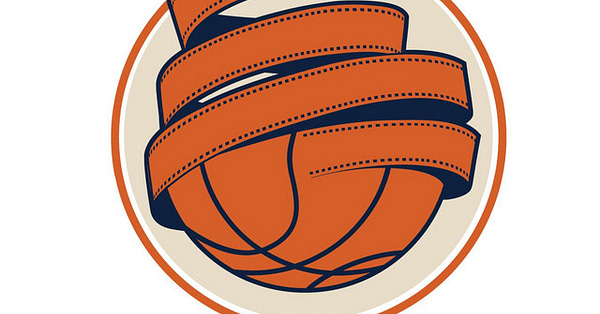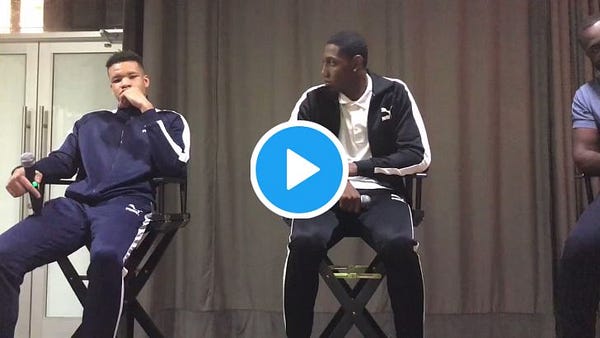What does it take to be a boss?
The question passed through my mind this week when I saw James Gandolfini pop up on my Twitter feed. He would have turned 58 yesterday.
He is and will always be known primarily for his role as Tony Soprano on the show that shared the name. That’s as it should be, but it’s also incredibly sad. We knew at least as far back as 1993’s True Romance that Gandolfini could act. His subdued role two decades later in the romantic dramedy Enough Said confirmed that he was capable of escaping the King Kong-sized shadow of the HBO character he played for nine glorious seasons.
Enough Said doesn’t get nearly enough attention, not because it’s a great movie (although it is, and is more than worth your $3.99 on Amazon Prime. Seriously…watch it this weekend. You’ll thank me later), but because it puts arguably the two most important television actors of the last 30 years together on the big screen.
“Important,” of course, doesn’t mean “best” (although outside of Meryl Streep, I’m not sure who holds a candle to Louis-Dreyfus over that time frame). When fellow Knicks fan and Ntilikina Island resident Alan Sepinwall joined me on the KFS pod earlier this year to discuss his book The Sopranos Sessions, I made that very leap and mentioned how I thought Gandolfini was, in fact, the best actor of his generation, in addition to the most important.
An actor buddy of mine shot me a text shortly thereafter, politely calling bullshit. “What Jim did as Tony Soprano was incomparable and deserves its own special recognition,” he wrote, “but it pales in comparison to the range and mastery of any of the great film actors of our time.” Daniel Day-Lewis, Philip Seymore Hoffman, Christian Bale…the list goes on.
I chewed on this for a while and ultimately couldn’t disagree. The Sopranos inextricably altered TV as we knew it and Gandolfini’s absence would have inextricably altered the show, but that doesn’t by itself vault him to the top of the list for who absolutely owned their craft.
In that instance though, we didn’t need the best guy. We needed Gandolfini. For all the insanely talented actors (and Robert Iler) who graced the screen on the greatest episodic of all time (don’t @ me), the show doesn’t work without him. His indelible impact was omnipresent, felt even when he was out of a scene, always lurking, hovering, and impressing on all in his orbit.
The Sopranos premiered on January 10, 1999. 10 days later, the NBA lockout ended, allowing the Knicks to play a very abbreviated season that for several months seemed as if it would have been better off cancelled. That they would make the 1999 Finals was as unlikely a story as a show about a sociopathic mobster from New Jersey forever altering the television landscape. I’m equally thankful for both.
Patrick Ewing, who played a prominent role in that lockout as President of the NBAPA, is the closest thing the Knicks have had to their own Gandolfini in the last 40+ years. Through no fault of his own, Ewing was neither the best nor the most important player on a championship team, but he gave New Yorkers a glimpse into what that kind of thing looks like.


Perhaps not coincidentally, RJ Barrett was born earlier in the summer Ewing was dealt. I’ve never gotten Ewing-vibes from anyone who wore the blue and orange since he departed. That is, until this summer, when our precocious rookie has been endearing himself to New Yorkers one day at a time.
This isn’t to say that Barrett is going to be as good as Patrick Ewing...he’s almost certainly not. He also doesn’t need to be. The Knicks have had a lot of talented players walk through their locker room over the last 20 years. What they’ve never had is someone to bring it all together – to offer stability for a franchise that often finds itself mired in quicksand.
At this point at least, Barrett’s leadership qualities are more of a sure thing than his game, to the point that we’ve collectively struggled to find an appropriate comp. For starters, he isn’t James Harden, the ceiling outcome he’s most often associated with.
Harden profiled as an unstoppable scoring guard who had .506/.376/.755 splits coming out of Arizona State (Barrett’s at .454/.308/.665, if you’re wondering). We knew that if nothing else, Harden would be able to efficiently score in bunches as a pro. Barrett offers no such guarantees beyond the overwhelming sensation that he just has enough of “it” (whatever “it” is) to eliminate failure as an option.
Other comparisons also fall short. To equate his multifaceted skill set to a poor man’s LeBron would be an insult to poor men everywhere. He’s bigger than Manu but doesn’t have nearly the same flair as a passer or shot-maker. There are other names that have been tossed around – Jalen Rose, Lamar Odom, and another former Knick who we’ll get to in a bit – but they all miss the mark in some way.
At the same time, to simply boil down his ceiling to a better passing DeMar DeRozan doesn’t properly capture the importance of what Barrett’s vision and court sense can mean to a team, to say nothing of his demeanor. There’s really no perfect equal, at least not when you’re trying to think of what a fully optimized version of Barrett will look like two or five or 10 years down the line.
What does seem certain is that whatever he is, it won’t be a player who can carry a team in the mold of a perennial All-NBA First-Teamer. He doesn’t have access to that level of shot-creation, is never going to be an elite shooter, and his athleticism falls just short of where you’d ideally like it to be.
But instead of focusing on what he isn’t, maybe it’s time we start focusing on what Barrett is. Much like Gandolfini didn’t need to be the best actor of his generation to change a medium as we knew it, Barrett doesn’t need to be a perennial MVP candidate to be the most important player the Knicks have had since Ewing, and maybe since the Captain himself.
Go through NBA history. It’s littered with players who may never have been in the conversation for the best player in the league or even on their own team, but whose value was never questioned. They are the tone-setters, the accountability checkers, the ones with whom the buck definitively stops. Franchises take their cues from them.
Draymond is probably the best current example, although Kyle Lowry deserves mention, as does Al Horford. Chauncey Billups is probably my personal favorite example. Kevin Johnson fits this mold as well. Maybe Mo Cheeks too, although he was a bit before my time.
Willis Reed is most definitely before my time. From everything we’ve been led to believe, while Walt Frazier may have been the best Knick of the championship years, Reed was the most important. He was their Gandolfini – the unquestioned boss of the operation. That’s partially why he won an MVP in the same season that Jerry West outscored him by 10 points a night (winning 60 games didn’t hurt either).
Game 7 only adds to Reed’s legend, a fact that sure seemed to annoy Clyde (who finished fourth in MVP voting that year) when he was asked about it at a Puma event earlier this week.
Sitting five feet away from Frazier at the same event was Barrett. At one point, he was asked about the Nets, and whether he fed into the budding rivalry. The Knicks rookie dismissed it as if someone asked him to validate their parking for the evening:


The genuineness with which Barrett couldn’t give a flying f--- about what’s going on across the East River was more than refreshing; it was necessary. It was a boss answer if there ever was one.
More importantly, it was exactly what this fan base wanted to hear…and he knew it. From saying he’d like to dunk on a certain Latvian to ending his draft night press conference with the now famous “Yo, I’m a Knick!” the kid knows how to play the game off the court as well as he does on it.
While being incredibly polished and media savvy doesn’t always equate to being able to pull a franchise up by the bootstraps and inject yourself into its much-maligned DNA, it’s certainly a start. For this particular franchise at this particular time in its history, it’s what they need as much as anything. There’s a gravitas to Barrett that can’t be taught, and it’s completely, 100% authentic.
Of course, plenty have had the bravado to fit in in this town. It only leads to ridicule, scorn and eventually ignorance without the ability to back it up on the court. On the flip side, truly talented players routinely quake and crack under the pressure of basketball’s most demanding stage (while some don’t even have what it takes to give it a go). In New York, you need both to thrive.
Melo came close, but his game always divided more than it unified. Barrett’s not the scorer that Melo was and likely never will be, but just like he might not have the talent of a Ewing or a LeBron or a Harden or a Clyde, maybe he doesn’t need to.
Maybe, like Gandolfini, it doesn’t matter whether he’s the very best or even close to it. Maybe he just needs to take ownership of a role and bring us something we could have never imagined before. Maybe, in the same way that we never thought we’d sympathize with a murderous philanderer as he wrestled with the responsibilities of marriage and fatherhood, we’ll watch RJ Barrett turn into a player that has no comp in the game today…or ever.
What can’t be denied, and what is wholly unfair to put on the shoulders of a teenager, is that just like the success or failure of The Sopranos depended wholly on James Gandolfini, the success or failure of this team for years to come will depend on Barrett. Luckily, he doesn’t need to be the best to be the most important. He just needs to be himself.
Maybe that’s more than enough.
Thanks for reading, talk to you next week!



